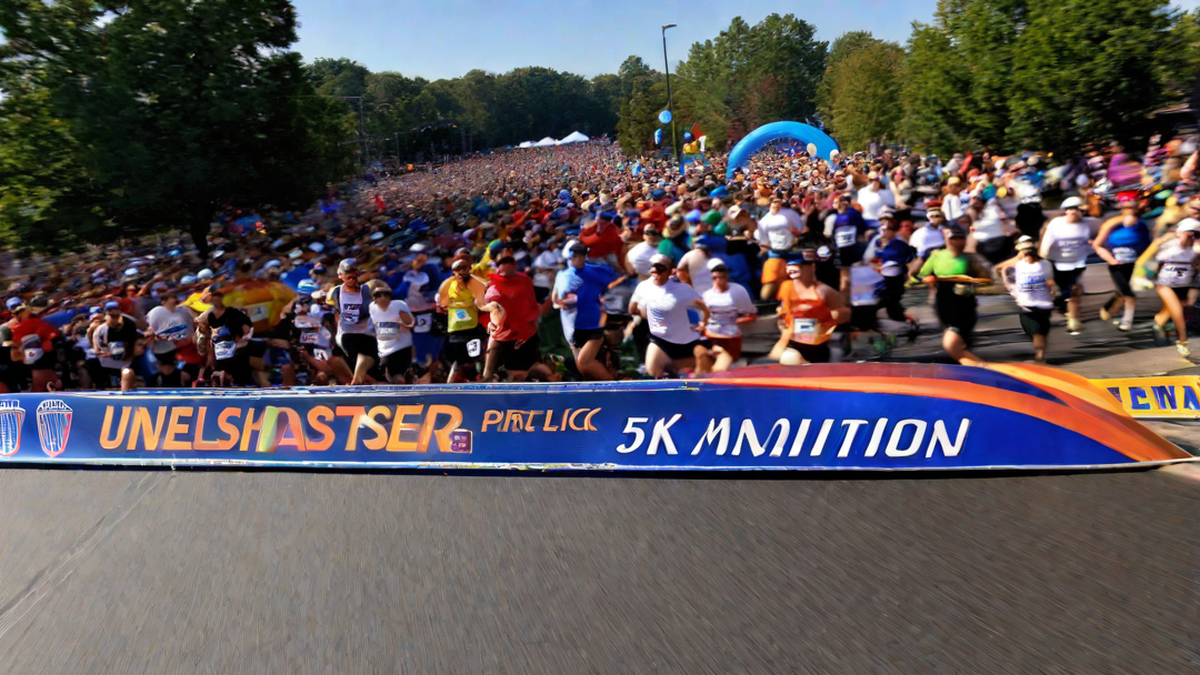When it comes to running a 5k, the question of how fast you should be running is one that many runners, including myself, often ask. The answer to this question depends on a variety of factors, such as your fitness level, running experience, and personal goals. In this article, I will delve deep into the details and provide some guidance on how to determine the right pace for your 5k race.
Know Your Current Fitness Level
Before setting a target pace for your 5k, it’s essential to understand your current fitness level. If you are just starting your running journey or have been inactive for some time, it’s important to set realistic expectations. Pushing yourself too hard too soon can increase the risk of injury or lead to burnout.
One way to gauge your fitness level is by performing a timed trial run. Find a flat surface, like a track or a measured stretch of road, and time yourself running at a comfortable pace for 3.1 miles (the length of a 5k). Note your finishing time and how you felt during the run. This trial run will give you a baseline time to work with and help you set a realistic goal for your race.
Set Realistic Goals
Setting realistic goals is crucial to ensure you have an enjoyable and successful 5k race. Consider factors such as your current fitness level, your training consistency, and any previous race performances. It’s important to challenge yourself, but also be mindful of what your body is capable of.
As a general guideline, a beginner runner might aim for a finishing time of around 30-35 minutes for a 5k. Intermediate runners may target a time range of 25-30 minutes, while advanced runners might aim for sub-20-minute finishes. However, these times are not set in stone, and everyone’s abilities and goals vary.
Listen to Your Body
While it’s helpful to have a time goal in mind, it’s equally important to listen to your body during training and on race day. Pay attention to how you feel during your runs. If you constantly feel exhausted or experience pain, it may be a sign that you need to adjust your pace. Running at a pace that is too fast for your current fitness level can set you up for injury or hinder your progress.
During the race, it’s normal to feel a surge of adrenaline and the desire to start fast. However, resist the temptation to sprint ahead of your target pace. Start conservatively and gradually increase your speed if you have energy left in the later stages of the race.
Train Smart
To improve your speed and endurance for a 5k race, it’s essential to incorporate both speedwork and long runs into your training routine. Speedwork involves running shorter distances at a faster pace to improve your overall speed. Long runs, on the other hand, help build your endurance and mental resilience.
Consider working with a running coach or following a structured training plan to help you optimize your training. These resources can provide guidance on the appropriate intensity and volume of your workouts, ensuring you make progress without overdoing it.
Celebrate Your Achievements
Remember that running a 5k, regardless of your finishing time, is an accomplishment in itself. It takes dedication, commitment, and a love for the sport. Whether you finish in 20 minutes or 40 minutes, be proud of your achievements and the progress you’ve made.
In conclusion,
There is no one-size-fits-all answer to the question of how fast you should be running a 5k. It ultimately depends on your goals, fitness level, and personal circumstances. As long as you set realistic goals, listen to your body, and train smart, you’ll be on the right track to achieving your best performance in a 5k race.

